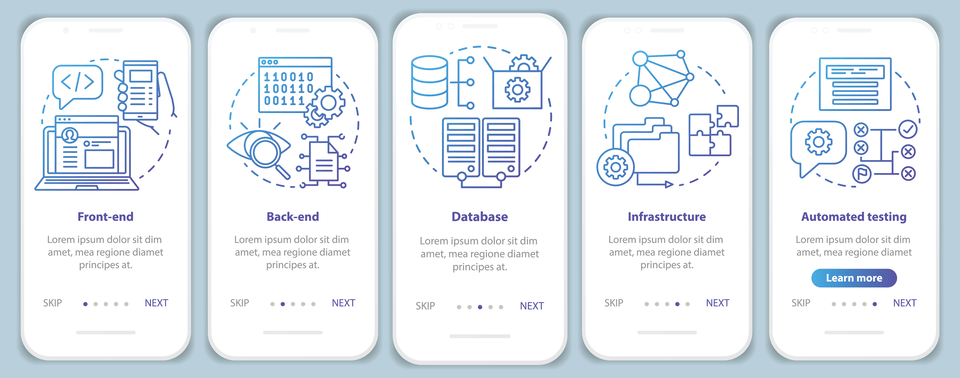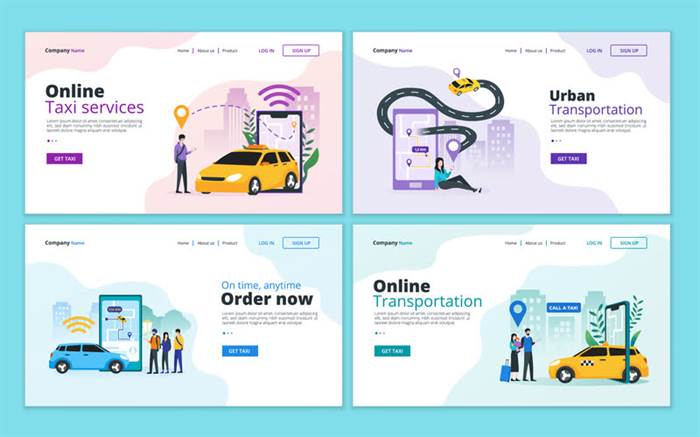What Is Fintech? Financial Technology Definition
Содержание
- Types Of Fintech Companies
- Understanding The Components Of Fintech Valuation
- What Is Fintech? Financial Technology Definition
- Student Loan Forgiveness: These 4 Fintechs Are Helping Borrowers Navigate Bidens New Plan
- Blockchain In Finance: What It Is And How Its Used
- How Does Sanction Scanner Help Fintech?
ICBA has serious concerns with the Office of the Comptroller of the Currency’s (OCC’s) intention to issue special purpose national bank charters for financial technology companies that could be used to access the banking system and avoid state consumer protection laws. The OCC should have explicit statutory authority from Congress before proceeding with the issuance of these charters. Any new federal charter should be subject to the same standards of safety, soundness, and fairness as other federally chartered institutions.
AML Data Get support for your AML compliance process with our global comprehensive AML data. It might be reasonable to predict that the largest, most successful, and ambitious fintech companies will lead the way. K&L Gates is prepared to assist in those applications and will closely watch how the fintech charter and related rules take shape.
This is the stage at which the company will raise Series A funding, where most early angels/seed funds will likely exit and VCs will increase exposure. Conceptually, the startup has now graduated to a lower risk state and hence there is a switch in the class of investors based on risk-reward expectations. In line with lower infrastructure and manpower, these companies have much lower marginal costs, as the business models are tech-enabled, rather than with transaction-linked high variable cost. This also makes these business models profitability increase exponentially after a certain critical mass that absorbs the fixed cost structure.

In addition, several fintech companies use blockchain technology for payment processing, money transfer and secure digital identity management. Some examples of cryptocurrency fintech companies include Coinbase, Blockfi and SALT. Banking fintechs, for example, may generate revenue from fees, loan interest, and selling financial products. Investment apps may charge brokerage fees, utilize payment for order flow , or collect a percentage of assets under management . Payments apps may earn interest on cash amounts and charge for features like earlier withdrawals or credit card use.
Types Of Fintech Companies
Fintech is also overhauling credit by streamlining risk assessment, speeding up approval processes and making access easier. Billions of people around the world can now apply for a loan on their mobile devices, and new data points and risk modeling capabilities are expanding credit to underserved populations. Additionally, consumers can request credit reports multiple times a year without dinging their score, making the entire backend of the lending world more transparent for everyone.

For example, Affirm seeks to cut credit card companies out of the online shopping process by offering a way for consumers to secure immediate, short-term loans for purchases. While rates can be high, Affirm claims to offer a way for consumers with poor or no credit a way to both secure credits and also build their credit histories. Similarly, Better Mortgage seeks to streamline the home mortgage process with a digital-only offering that can reward users with a verified pre-approval letter within 24 hours of applying. GreenSky seeks to link home improvement borrowers with banks by helping consumers avoid entrenched lenders and save on interest by offering zero-interest promotional periods.
Understanding The Components Of Fintech Valuation
Given the proliferation of cybercrime and the decentralized storage of data, cybersecurity and fintech are intertwined. Roboadvisors, such as Betterment, utilize algorithms to automate investment advice to lower its cost and increase accessibility. Cryptocurrency (Bitcoin, Ethereum, etc.), digital tokens (e.g., NFTs), and digital cash.

To meet the requirements of FinTech regulations, they must create an AML compliance program. While many fintech companies such as money-services business are already subject to anti-money laundering program requirements under the Bank Secrecy Act, those companies might find that their AML requirements increase upon becoming a fintech bank. One reason for this is that AML regulations applicable to banks are more detailed and impose greater obligations on banks as opposed to certain other institutions like money-services businesses. Although the Financial Crimes Enforcement Network’s AML regulations for banks do not seem to apply to non-FDIC-insured banks at this time, the OCC’s regulations require all national banks to comply with those regulations (in addition to the OCC’s own AML regulations).
What Is Fintech? Financial Technology Definition
A fintech bank charter will come with many advantages over conducting a fintech business without the charter. These advantages include the ability to engage in numerous transactions without having to share profits with a bank partner, preemption of state licensing and many other laws, and having fewer regulators to contend with on a daily basis. However, the regulatory burdens and expectations that come with a bank charter might not be worth the corresponding advantages for every fintech company. In addition, since the enactment of the Dodd-Frank Act, agents and nonbank subsidiaries of a national bank no longer enjoy the federal preemption rights of the national bank.
- This is definitely larger than the number of countries served by most large international banks which have been in existence for over 100 years.
- The Fintech Licensing Manual states that the OCC would expect some members of the organizing group, the proposed board of directors, and management to have experience in banking or broader financial services.
- For example, Uber doesn’t own any cabs or doesn’t need to have a huge setup for owning, servicing or maintaining cars.
- Examples of fintech applications include roboadvisors, payments apps, peer-to-peer lending apps, investment apps, and crypto apps, among others.
- There have also been instances where the collision of a technology culture that believes in a “Move fast and break things” philosophy with the conservative and risk-averse world of finance has produced undesirable results.
- To avoid the risk of money laundering, FinTech has to fulfill its AML obligations in the regions they serve.
- Transaction Monitoring software helps them comply with Terrorism Counter-Financing regulations.
With new age mobile-enabled fintechs, they are accessible to a client across the legal geography that they operate in and hence can rapidly scale up business. As fintech has grown, so have concerns regarding cybersecurity in the fintech industry. The massive growth of fintech companies and marketplaces on a global scale has led to increased exposure of vulnerabilities in fintech infrastructure while making it a target for cybercriminal attacks.
The use of services provided by financial technology companies as a potential crime method by criminal organizations has made it necessary for FinTech companies to combat financial crimes effectively. The Anti-Money Laundering Compliance Program covers everything companies at risk of financial crime do in combating financial crime and compliance processes. To avoid the risk of money laundering, FinTech has to fulfill its AML obligations in the regions they serve.
Student Loan Forgiveness: These 4 Fintechs Are Helping Borrowers Navigate Bidens New Plan
A simple example could be a drastic reduction in cash balances that customers keep, as fintechs enable low-value P2P payments. This, in turn, is likely to increase idle balances kept with the fintech, as compared to traditional bank accounts. A real example in the fintech world is from wallet startups like Paytm using P2P transactions for enabling low-value payments to settle transactions amongst friends, splitting bills and making payments to small businesses. The guide does not substantively alter existing supervisory guidance issued by the agencies and applicable to banks considering arrangements with fintech companies. It does, however, provide a structured approach to due diligence for community banks and, in particular, for those banks with minimal prior experience partnering with fintechs.

FinTech provides businesses and consumers with innovative tools and products, such as online credit, trading platforms, or AI management-led wealth management. Since these services are different from traditional financial services, there are different risk algorithms. Financial Technology improves and automatesfinancial services using new technologies. FinTech aims to compete with the traditional financial services method because technology has developed, and traditional methods are insufficient, so the financial sector needs FinTech and its solutions. FinTech has developed the financial sector using mobile banking, mobile payment, cryptocurrency, and bitcoin technologies. The agencies encourage community banks to assess a fintech company’s ability to continue operations through a disruption, including events like technology-based failures, human error, cyber incidents, pandemic outbreaks and natural disasters.
Blockchain In Finance: What It Is And How Its Used
High-risk customers or transactions at FinTech can create big problems, and FinTech can perform EDD procedures to prevent this. Political Exposed Persons and their family members or partners should undergo a more comprehensive review process at FinTech. EDD allows you to identify risks that cannot be detected by the CDD so that FinTech can protect their business from financial crimes such as money laundering and protect their companies’ reputations. One challenge for any group seeking to charter a new bank is identifying management that will satisfy the OCC. The Fintech Licensing Manual states that the OCC would expect some members of the organizing group, the proposed board of directors, and management to have experience in banking or broader financial services. Indeed, in practice, the OCC routinely requires banking expertise of the management of a de novo charter.
Even so, the Federal Reserve in the past has argued that it could refuse to provide a Master Account to an institution that posed “too great a risk” to the Federal Reserve System. Although that particular case involved a credit union that intended to offer accounts to legal marijuana distributors, the case indicates that the Federal Reserve believes it has at least some discretion in deciding whether to provide Master Accounts. One of the primary hurdles for a nondepository financial institution that provides money transfers or other payment processing services is the inability to conduct such transactions without partnering with a bank or savings association. In addition, while the fintech bank would be able to preempt state licensing requirements for issuing of prepaid cards, certain prepaid card offerings might raise federal policy issues. When a traditional bank issues a general-use prepaid card, such as a card that is network branded and usable everywhere that brand is accepted, the funds underlying the card are FDIC insured.
Regulatory uncertainty for ICOs has also allowed entrepreneurs to slip security tokens disguised as utility tokens past the SEC to avoid fees and compliance costs. Not surprisingly, regulation has emerged as the number one concern among governments as fintech companies take off. As for consumers, as with most technology, the younger you are the more likely it will be that you are aware of and https://globalcloudteam.com/ can accurately describe what fintech is. The fact is that consumer-oriented fintech is mostly targeted toward millennials given the huge size and rising earning potential of that much-talked-about segment. Some fintech watchers believe that this focus on millennials has more to do with the size of that marketplace than the ability and interest of Gen Xers and baby boomers in using fintech.
Adverse Media Screening is a service that allows you to search for adverse media and negative news about a person or a business. Adverse Media is an essential part of Know Your Customer and Anti-Money Laundering processes. Therefore, Adverse Media screening is a critical element in Fintech institutions and is considered a key factor in combating financial crime and reputational risk. FinTech, which can scan customers and business partners in Adverse Media data in seconds using Adverse Media Screening software, also complies with EU Directives and FATF recommendations. “Covered transactions” for this purpose include, among other things, extensions of credit to an affiliate and the purchase of assets from an affiliate.
Fintech is a popular contemporary buzzword and many of its products touch our lives every day. A fintech simply refers to a company that operates in the financial services sector and leverages the power of technology to simplify, automate, and improve the delivery of financial services to end customers. Further, they can be classified into various sub-sectors including fintech industry overview payments, investment management, crowdfunding, lending and borrowing, insurance, cross border remittances, and so on based on the specific segment that they are trying to service. Use of the guide is voluntary, but the agencies highlighted that arrangements with fintech companies, like those with other third-party relationships, can introduce risks to the bank.
The full Fintech Licensing Manual provides that the organizing group must disclose its proposed chief executive officer when filing the charter application. Because even in the best of circumstances the charter approval process can take months, this often means that the organizers must identify suitable management long before a charter is issued and convince those persons to stay on board throughout the chartering process. The OCC then will conduct background checks on all of these individuals, considering the character, competence, experience, and integrity of all proposed senior managers.
How Does Sanction Scanner Help Fintech?
Large banks’ consumers may benefit from new services such as online notarization, AI-driven banking security, and bill payment. Many banks will require fintech partners in their B2B and B2C companies to develop their development strategy. Additionally, as the world becomes more and more digitized, banks embrace digital payments. To make their services more sophisticated for their clients, banks have begun to partner with fintech companies.
The first two parameters measure the efficiency of the bank and how efficiently capital is being deployed, while the other two are measuring returns that accrue to shareholders, taking into account the capital structure and the expected growth in earnings. Embedded finance is the term for when a non-financial business integrates fintech tools into its point of service. Examples include payment processing terminals at coffee shops and buy-now-pay-later buttons on e-commerce store checkouts.


